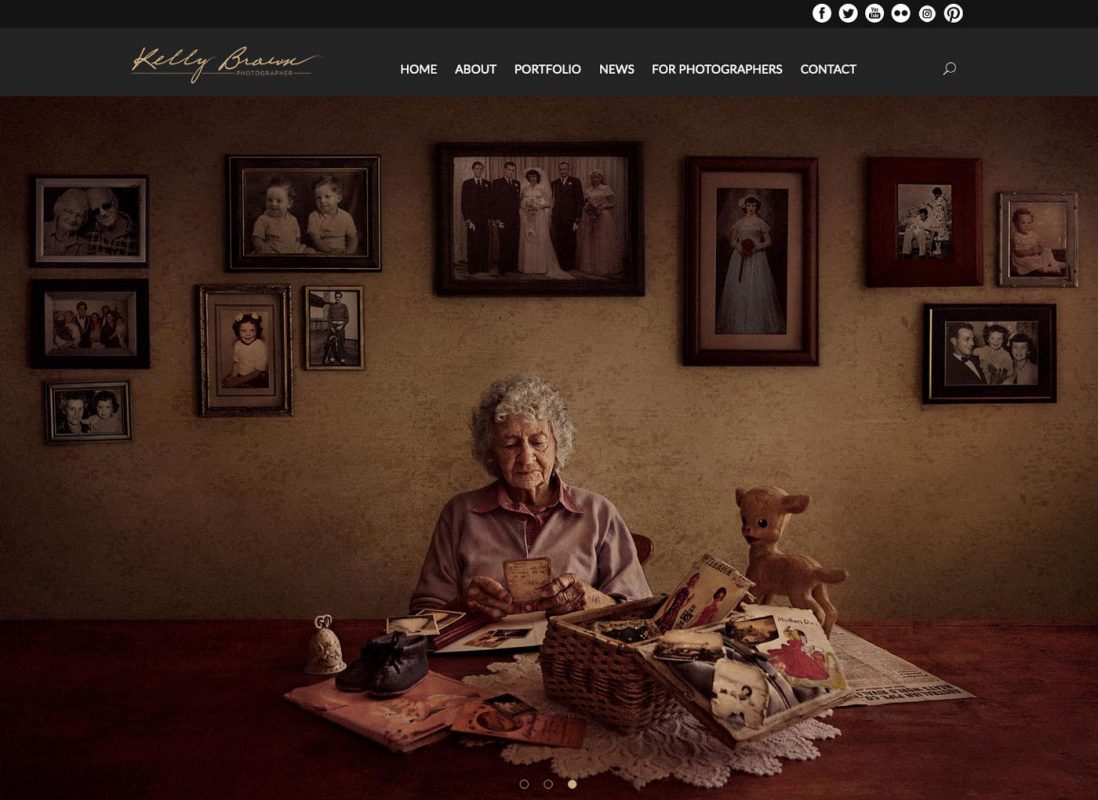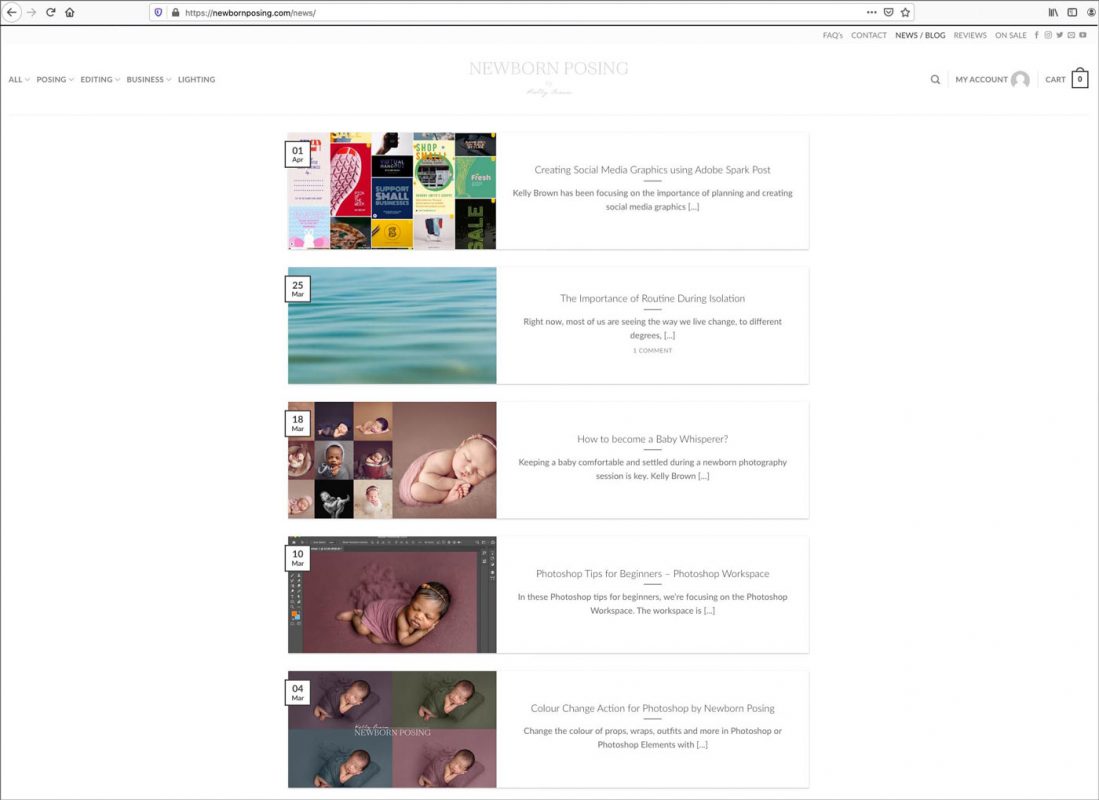With over 3.8 billion social media users worldwide, you may be tempted to ask, why do I need a website for my business? Sure, creating social profiles for your business is important to help you engage with your target audience in the spaces where they consume content regularly. However, social media alone is not enough.

WHY SOCIAL MEDIA ISN’T ENOUGH FOR YOUR BUSINESS
You need a website as part of your wider marketing plan, to maximise your opportunities to generate and convert leads. Your website can integrate with your social media activities. This helps provide detailed information, collecting details from new enquiries, and lead to more effective communications channels.
WHY YOU NEED A WEBSITE FOR YOUR BUSINESS
A website is a diverse medium which allows you to clearly layout information your potential clients will be looking for. You can use a mix of media, both still and long-form video. While social media platforms limit your unique visual identity to a custom banner, a website is your blank canvas. Use it to represent your brand and communicate with your audience.
Following are some of the reason we believe you need a website for your business. These will help you to sit on a level playing field with your competitors.

EXIST IN SEARCH ENGINE RESULTS
One of the greatest benefits to having a website is the opportunity to be discovered by a new audience. This leads to new enquiries. Google processes over 3.5 billion searches per day. And remember, Google is just one of many search engines being used by consumers searching for products and services.
What are you doing to make sure you are found in those search results?
As search engines “crawl” the pages of your website, they index your content. They’re looking for keywords, how recently your pages were updated, the type of content on your pages, and so on. When a user performs a search, the search engine’s algorithm matches the query with their indexed content. It adds in considerations for location, language, device and more, before returning the results. For you to appear in those results, it’s imperative that your website’s pages reflect the type of queries your audience is interested in. Do this through dedicated client information pages about your products and services. And, address topics of interest via a blog.
ADD A BLOG
A blog gives you opportunity to create fresh content regularly, giving web crawlers new information to browse and index. While you can write about absolutely anything in your blog, a good approach is to brainstorm the topics your target audience is interested in. Search engine algorithms look for genuine content. This means giving quality information without trying to play the system (trick the algorithm). Express your personality through the topics you write about. Let your audience know what you have in common with them.
While it’s important to have photography-related content in your blog, you can also diversify. Incorporate other topics your audience is interested in. This will broaden your reach and create brand awareness. Do you have new decor or props in your studio which might also work well in a baby or child’s bedroom? Write a decor post, while planting the seed about the importance of photography. Are you making sitter or cake smash props which could also be used for a child’s birthday party decorations? Write a DIY post. Those who find it may not even know that cake smash portrait sessions are an option. Accompany your posts with beautiful images, and crosslink back to other photography-specific or enquiry pages in your site.
See also: 22 Blog Topics for Newborn Photographers
Incorporating a blog into your website gives you an opportunity to build your authority in your field through the topics you write about and the news you share. Don’t forget to include recent events, awards, and other achievements.

WEBSITES HELP PROVE CREDIBILITY
Having a website for your business helps prove credibility. It shows you’ve invested your time and talent in design and copy (text) considerations, to bring together a cohesive piece of communication.
While anybody can create a Facebook page or Instagram profile, a website shows a point of difference. It shows a commitment as a business, to the clients you serve. Many people who find products and services on social media, look for websites to validate the legitimacy of the business.
A website says, “I’m a professional. I’m here for the long-term.”
YOU NEED A WEBSITE BECAUSE YOUR COMPETITORS HAVE ONE
Normally, we tell you not to worry about what your colleagues and competitors are doing, and run your own race. However, when it comes to being found online, if you don’t have a website, you’re missing out on enquiries. And, your competitors who do have websites ARE getting enquiries.
It’s important that you build your own unique website, reflecting your brand. Use copy which is relevant to your products, services and location. If you want a piece of the competitive marketplace, you need to exist in the relevant spaces. Be accessible to search engines.
A quick note on “Passing Off”..
DO NOT COPY the content of another business’s website. Do not copy their text or images. And do not use their business names in your SEO or keywords in the hope of drawing their audience to you. This is, at minimum, unethical, and in many regions, illegal, known as Passing Off. If you hire someone to build your website or help with SEO, relay these ethical standards to them also. “My web guy did it” isn’t an excuse.

SOLIDIFY YOUR BRAND
Building a website is a massive opportunity to put your brand out there. Unlike the limited customisation on social media interfaces, websites offer a broad amount of creative flexibility. You can be as minimal or as outlandish as suits your brand’s persona. Use your website to reflect your brand’s voice through your written word and videos. Express your brand identity through the site’s visual elements of colour palette, iconography, graphics, logo, typography and more.
First impressions are everything. Your website can show who you are as a brand in the first few seconds. It’s is a powerful tool in attracting the right clients.
BETTER COMMUNICATION CHANNELS
Use a form on your website to direct enquiries to you via email. While social messenger platforms might be convenient, they offer minimal options for sorting or tracking. They can also become a distraction in your personal time.
In general, email platforms offer advanced methods of tracking, filtering and automating correspondence. This makes enquiries easier to search, flag and follow up. Additionally, setting up domain-based email (ie. not a free service such as gmail, which often sends enquiries to junk) looks more professional.
As a workflow habit, there’s also great benefit in moving enquiries from the social media platforms you use for personal enjoyment at any hour of the day. Directing enquiries to email gives you more control over your workday structure. You can allocate email as a task in your working hours.
YOU NEED A WEBSITE AS PART OF A WIDER MARKETING STRATEGY
Say you run an ad on Facebook and Instagram, perhaps for model calls or a seasonal promotion. What next? Sure, you can have people inbox you across both platforms, along with every other enquiry you’re receiving at the same time. But it’s not the most effective system.
A website creates the opportunity to build landing pages – a page dedicated to a specific promotion or product. Use these to send people to after clicking your ad. Your landing page could include more information, a beautiful video about the experience, reiterate the requirements for applicants. All of these help increase the chances of conversion.
If you incorporate an enquiry form which separates these submissions from your general enquiries, you’ll find tracking these leads much simpler also.
CUSTOMER SUPPORT
An FAQs page on your website, supported by links to detailed pages where appropriate, can help to answer many of your audience / customer’s queries in one central place. Note, it’s important to find the balance between giving away too much information online versus than creating the telephone / email relationship. Give this careful consideration.

WHERE TO START WITH YOUR OWN WEBSITE
If you don’t yet have a website, or haven’t updated yours recently, spend the next few weeks analysing your own online browsing habits.
- How are you searching for products and services?
- Which results are drawing you to click for more information?
- What is the journey those brands are taking you on?
- What did you enjoy and what did you find frustrating?
- Did you find it easy or difficult to find the information you needed? Why?
- What appealed visually and what didn’t?
- What was the customer support like?
Make notes on your experiences and draw on these when you come to start planning for your own website. A great website offers a seamless user experience, and that’s often an ongoing process of constant improvement. Your own positive and negative experiences as a consumer are a good place to start analysing this.
Have a question? Ask us in the Kelly Brown – Newborn Posing online community on Facebook.

